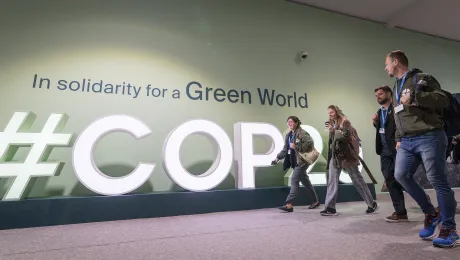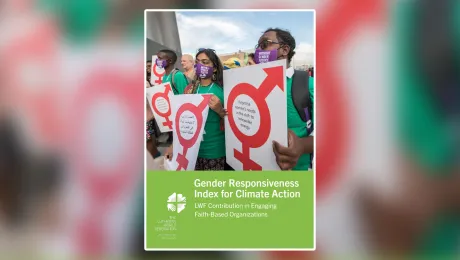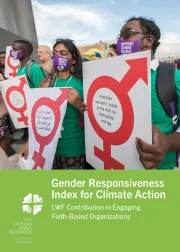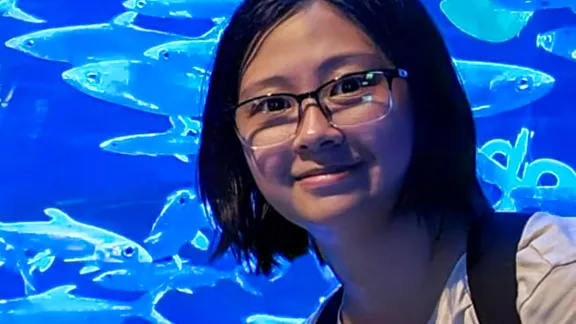
Ms Sabrina Lam. Photo: Private
A church in Hong Kong holds recycling workshops, beach clean-ups and trips to learn about the local environment
As an ecology and conservation graduate returning to Hong Kong after studying in the United Kingdom, there were several things that I realized about our very urban and dense city: the awareness of climate and conservation issues is quite low, our recycling system is confusing, and people don’t have a lot of opportunities to connect with nature. So how could they learn to appreciate and protect our natural environments?
Education starts early. With the support of The Lutheran World Federation (LWF) Climate Justice funding, we wanted to start improving the education of our younger generation, showing what they can do to help protect our world, no matter how small those actions may be. Starting with our homes, our first activity was a recycling and upcycling workshop. With a short introduction to see how much waste we create every day and how our waste is sorted into different categories, we then delved into our recycling system with an activity to explore what can be recycled in our colored bins, what goes to recycling stations, what cannot be recycled, and what may need some processing before being recycled.
Recycling and upcycling
Many of the products we use every day are a combination of different recyclable materials and separating them for recycling is not always easy. Understanding the system of recycling bins is not simple either. Perhaps someone amongst our children will be inspired to introduce a more efficient, less confusing system when they grow up. Of course, we also reminded them that the best thing is to reduce the waste we produce, which brought us to the second part of the workshop: upcycling bottles to make do-it-yourself lanterns, just in time for our mid-autumn festival! We hope this activity will inspire them to reuse their “waste” in creative ways, even far into the future.
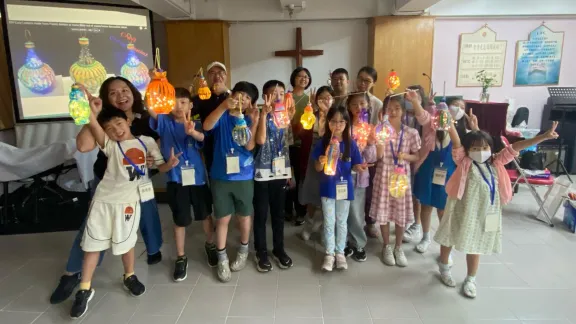
Children with the lanterns made from up cycling bottles. Photo: Praise Lutheran Church, Hong Kong
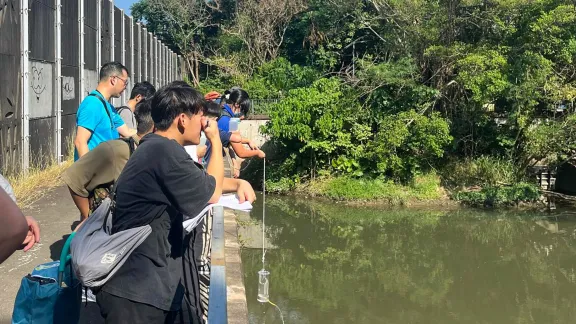
Participants on a field trip to test water quality in Hong Kong. Photo: Praise Lutheran Church, Hong Kong
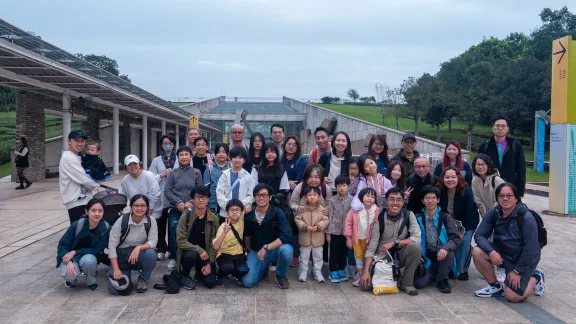
A group tour to learn about biodiversity in Hong Kong Wetland Park. Photo: Praise Lutheran Church, Hong Kong
Our next activity was a classic beach cleanup. We had a great turn-out, with 47 participants cleaning up 101 bags of trash from just one single beach! It was shocking to see that even with so many people cleaning up so much trash, there was still a lot left. For this activity, we collaborated with the volunteering group GoGo Clean Up, which has been operating clean-ups almost daily, all over Hong Kong since 2018. By connecting with an experienced volunteer group, we have opened the doors for all to experience the joy and satisfaction that this work brings. I am sure our church will be participating more in these clean-ups, as a group or as individual members.
Water quality and biodiversity
Our third activity was related to my current job – a water quality field trip. Hong Kong has a lot of rivers, but many are damaged or altered to fit the surrounding urban areas and turned into drainage channels that, in addition to upstream river water, carry household discharge and gradually flow into the ocean. For our field trip, we visited one of the tributaries of Kam Tin River in the urban area of Yuen Long. As our time was limited, we could only get a few water samples and couldn’t visit the areas further downstream where the aquaculture ponds are located, but it was a good opportunity to demonstrate how human activity can pollute rivers and cause deterioration in water quality. Along the river, we saw a lot of tilapia and carp fish, an invasive species introduced from pond aquaculture – often an indication of bad water quality.
Yuen Long Light Lutheran Church kindly lent us their space to use as a laboratory where the participants tested water quality parameters using some drop tests and looked for microplastics under the microscope. We found that the areas we sampled had quite bad water quality, with toxic levels of nitrates and extremely low dissolved oxygen. No wonder we didn’t see many fish other than tilapia or carp, as other species couldn’t survive such harsh conditions! We concluded by discussing some potential causes of our results – in short, human activity is the main source of pollution (from traffic runoff to household discharge), and it is our responsibility to reduce our impact on the environment, starting from reducing water waste and using more environmentally friendly products. Of course, industries also cause a lot of pollution, but we still need to do our part, even if it seems small.
Our final activity was a biodiversity tour in Hong Kong Wetland Park, to learn about our rich biodiversity and our beautiful wetland ecosystems. It was held on the 24 November and we invited some friends from other churches who are really experienced and familiar with the local biodiversity to help explain, from both a religious and environmental point of view, why we should strive to conserve these ecosystems. This is especially important in times when the government and industries are pushing for using wetland and other fragile ecosystems for land development.

